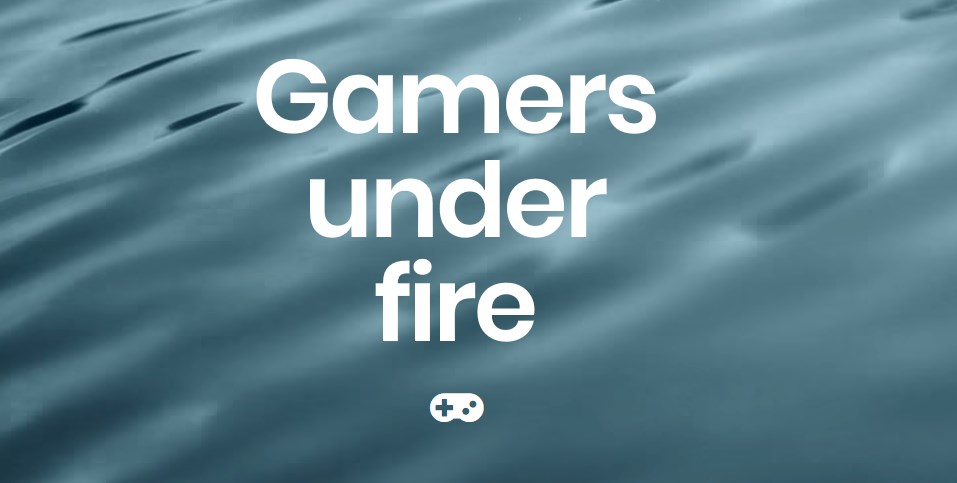The National Committee on Games Policy is a new body aiming to bring self-regulation to the industry
The group announced itself to the world as a non-partisan think-tank and consumer advocacy group.

As regulatory bodies continue to investigate whether or not loot boxes in videogames should be considered a form of gambling, a group of "industry leaders and experts" has come together to form a new advocacy group called the National Committee for Games Policy. The organization said in a press release that it was not formed to espouse any particular political positions, but rather to "give policy makers the information they need to make informed decision[s]."
"Unlike the IGDA, we are not an association of game developers. We are a coalition of high level industry experts and influencers," the NCGP said. "Membership in the NCGP is by invite only. We will work on the behalf of games industry professionals of all political leanings. In order to do this, the NCGP has appointed a steering committee with significant political experience on both ends of the spectrum. Where videogames, politics, and law intersect, you will be sure to find the NCGP."
The NCGP will have two divisions: ITK, a "privately-funded think tank," and SRO, "the videogame industry's first, and de facto, self regulatory organization." The ITK side will use its political connections to help legislators deal with matters representing the industry as a whole, while the SRO will function as more of a consumer advocacy organization, although it also promises to support game makers as well.
"[The SRO's] purpose is to protect consumers from unscrupulous videogame companies by investigating and bringing legal action against those companies that have damaged the public consciousness in some way, whether mental or physical. To do this we’ve enlisted the aid of game developers' employees as well," the NCGP website says. "By establishing the first videogame industry whistleblower center, we’re able to help the videogame industry fight things such as overtime pay."
"As part of our work as an SRO, we will release a quarterly list of companies who we have cited and the reason for citation. While we do hope to help as many people as possible, a complaint doesn’t become a citation without further investigation and action by the NCGP."
It's a worthwhile goal at first blush, especially given the ubiquity of videogaming and the sheer economic value of the industry. But this public unveiling also has a certain amateur roughness to it that I wouldn't expect from an organization with a serious intent to influence policy. The promise that it will never take a political position is also undermined by the "Gamers Under Fire" header on the website, while its out-of-the-gate quest to protect people from "unscrupulous videogame companies" suggests to me that it does in fact hold some strong positions from the outset.
The steering committee leaves me with questions too. Three of its eight members are employees of Incuvation Games, the publisher of the free-to-play space strategy game Nemexia. There's also the founder of Paralux Interactive, which as far as I can tell has released just one game, Sportball Manager, in 2015, and the co-founder of Black Shell Media, who describes himself as a "growth hacker, copywriter, and inbound marketer." None of which is meant to cast aspersions on the individuals involved—a more diverse range of voices is always welcome—but it makes me wonder what sort of experience and insights they have regarding the mainstream game industry, and what political connections they can bring to bear in furtherance of its interests.
The biggest gaming news, reviews and hardware deals
Keep up to date with the most important stories and the best deals, as picked by the PC Gamer team.
I've emailed the NCGP to ask about those connections, and the impact it hopes to have on the future direction of the industry, and will update when I receive a reply.

Andy has been gaming on PCs from the very beginning, starting as a youngster with text adventures and primitive action games on a cassette-based TRS80. From there he graduated to the glory days of Sierra Online adventures and Microprose sims, ran a local BBS, learned how to build PCs, and developed a longstanding love of RPGs, immersive sims, and shooters. He began writing videogame news in 2007 for The Escapist and somehow managed to avoid getting fired until 2014, when he joined the storied ranks of PC Gamer. He covers all aspects of the industry, from new game announcements and patch notes to legal disputes, Twitch beefs, esports, and Henry Cavill. Lots of Henry Cavill.

